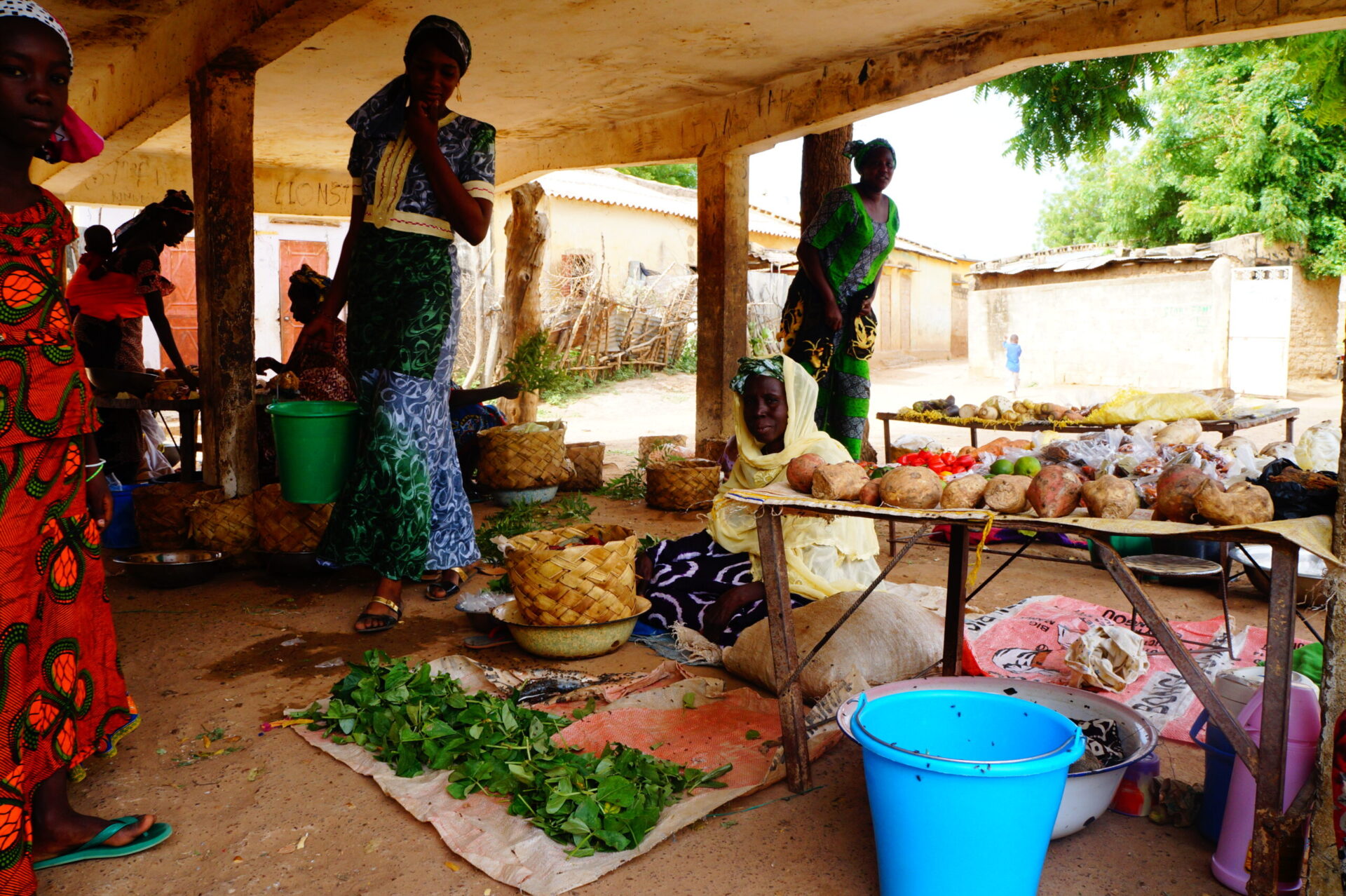Supporting private adaptation to climate change in semi-arid lands in developing countries

By Florence Crick, Kate Gannon and Estelle Rouhaud. This article is based on a blog first published in Thomson Reuters Foundation News, on 18 June 2018: http://news.trust.org/item/20180618165133-yqbea
Introduction
Around a billion people, including some of the world’s poorest, live in semi-arid lands (SALs). Rainfall is scarce and unreliable in these “climate hotspots” and the frequency and severity of extreme weather events is projected to increase due to climate change. Combined with high-levels of poverty and lack of development, these populations are likely to become more vulnerable over the next decades.
Under the Paris agreement, governments are already committed to supporting vulnerable populations to manage the impacts of climate change – impacts which will fall disproportionately on them. Yet supporting communities in semi-arid lands (SALs) to adapt will not only buffer them against climate change but also drive economic development and help to achieve the 2030 Sustainable Development Agenda.
SMALL BUSINESSES DOMINATE PRIVATE SECTOR IN AFRICA AND ARE KEY TO CLIMATE-RESILIENT DEVELOPMENT
In Africa small businesses dominate the private sector, which generates two-thirds of the continent’s investment, 75 percent of economic output and 90 percent of employment. So, the ability of small businesses in SALs to adapt to climate change – and grow in spite of it – is crucial for sustainable economic development. However, their potential can only be realised if adaptation and development are supported together.
Households, producers and businesses in SALs already manage climate change risks by, for instance, diversifying their agricultural crops, herds and supply chains, or migrating (see figure 1). But some strategies are not sufficient to buffer them against current or future shocks and stresses. And some, such as the distress sale of assets at low prices to limit loss and damage, reduce their ability to cope with extreme climate events in the future.
Businesses provide jobs and can support adaptation in their communities. They must be at the core of climate-resilient development. But they cannot do this effectively alone.
This policy brief* published by the Pathways to Resilience in Semi-arid Economies (PRISE) project argues that to unlock the potential of businesses to drive climate-resilient development, national governments and their development partners need to rapidly upscale support for private adaptation in SALs. The brief provides an overview of adaptation and climate-resilient development in semi-arid lands and the opportunities presented by enhancing private sector adaptation, and provides recommendations on how to create an enabling environment for private sector adaptation across a broad range of private actors.
*(download available in the right-hand column; also available in French – see link above or download from the further resources below).

Lessons Learnt
FINANCE
Access to finance is a particular barrier to adaptation. Informal enterprises which dominate the private sector in SALs, and those with restricted access to land ownership – including women and producers using communally owned land, struggle to access credit.
Even among formal enterprises, climate and business development finance is often unavailable to small and medium enterprises, which find it hard to access banks loans, but are not eligible for existing initiatives for micro-sized businesses.
CLIMATE INFORMATION, INFRASTRUCTURE AND POLICIES
However, finance alone is not enough. Businesses also need access to climate information and early warning signals; climate-resilient transport, water, electricity and communication infrastructure; and policies which account for the flexible, mobile and informal nature of livelihoods in SALs.
What’s more, support must be inclusive. Some of the most vulnerable livelihoods have been largely excluded from government support. Small household-run businesses managed by women are particularly poorly supported. Their limited access to land, finance, educational opportunities and other assets means that women’s livelihoods are especially vulnerable to climate risks.

THE TWIN GOALS OF ADAPTATION AND DEVELOPMENT
Crucially, it is clear that to enable sustainable economic development in SALs, policy-makers can no longer afford to treat adaptation and development separately.
Currently national plans for economic development rarely address the adaptation needs of the private sector and National Adaptation Plans often don’t account for small and informal businesses, which provide most employment in SALs.
Policy-makers must take a joined-up approach in planning for adaptation and for development. There is an opportunity now to support businesses to drive climate-resilient development among some of the world’s poorest and most marginalised people. To miss this opportunity risks leaving these communities increasingly vulnerable to the impacts of climate change.
Overall key messages from the brief:
- Supporting private adaptation and climate-resilient development in semi-arid lands is fundamental to achieving the 2030 Agenda for Sustainable Development pledge to ‘leave no one behind’.
- Developing country governments, supported by development partners, have a key role to play in enabling sustainable and inclusive private adaptation in semi-arid lands and in unlocking the potential of the private sector for adaptation.
- Public policies, as well as climate and business development funds, need to account for the fact that the private sector in semi-arid lands is often informal, that people are mobile, and that they often move in and out of different economic activities.
Pathways to Resilience in Semi-Arid Lands (PRISE)
Pathways to Resilience in Semi-Arid Lands (PRISE) is a five-year (2013-2018) research project that focuses on semi-arid regions in Senegal, Burkina Faso, Kenya, Tanzania, Pakistan, Tajikistan and Kyrgyzstan. Find more resources on the PRISE website: http://prise.odi.org/
Suggested Citation (for the brief)
Gannon, K. E., Crick, F., Rouhaud, E., Conway D. and Fankhauser, S. (2018) Supporting private adaptation to climate change in semi-arid lands in developing countries. Pathways to Resilience in Semi-arid Economies (PRISE) briefing. Grantham Research Institute on Climate Change and the Environment: London. Available online: http://prise.odi.org/research/supporting-private-adaptation-to-climate-change-in-semi-arid-lands-in-developing-countries/
(0) Comments
There is no content